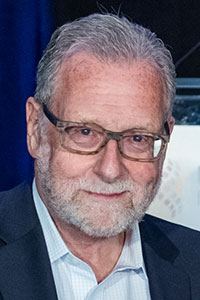
“Things are changing, but the question then becomes, how do you not go back to bad pre-pandemic habits?” said CBS News travel editor, Peter Greenberg, on the return of travel, when addressing attendees at Destinations International’s CEO Summit. “We may be going back to bad habits.”
According to CBS News travel editor, Peter Greenberg, who summed up the current state of the travel in a talk given during Destination International’s (DI) CEO Summit — a hybrid event held May 25-27 online and in-person in Tampa, Florida — travelers are challenged by unpredictable airfares, fluctuating entry restrictions, and rental car shortages. All of which gives destinations and suppliers an opportunity to work together to build a better model for the travel industry.

“The game has changed not just for the DMOs, but everyone in the travel industry.” — Peter Greenberg
“It’s not a question of the surprise of the numbers of people traveling, but it is, maybe, a surprise as to where they’re going, why they’re going, and perhaps most importantly, how they’re going — as well as their new demands and expectations,” Greenberg said.
“That means that [DMOs’] marketing playbooks have to be burned, because the game has changed not just for the DMOs, but everyone in the travel industry — the hotels, the cruise lines, you name it.”
And for organizers restarting their in-person meetings this year, that means managing expectations for attendees from the get-go. Equipping themselves, and their attendees, with the most up-to-date information and playing close attention to these issues is key, along with working closely with DMO partners. There’s an opportunity here, Greenberg said, “to let people know you feel their pain and you’ve got their backs.
“People still need that security blanket, and you should look at those touchpoints in every aspect of the travel experience, to see what you can do to preemptively take care of that,” he said. “We talk about economic recovery, but what we really need to talk about is emotional recovery.”
Greenberg shared a rundown of the shifts happening right now that are affecting travelers.
Volatility — “[Fares are] changing so rapidly, in terms of the domestic market where airline tickets are up four percent over 2019 right now, that a business class ticket to Italy this morning was less than coach airfare to New York,” Greenberg said.
More CEO Summit: How to Connect With Others in a Digital World
To boot, airlines have reopened middle seats and have started to reinstate some change and cancellation fees. Greenberg pointed out that consumers are still feeling skittish after the past year as many are still unable to get refunds or get through to customer service or use travel insurance to recoup change and cancellation costs because most travel insurance doesn’t cover pandemics.
“People don’t want to get hosed again,” he said. “It’s not what people are talking about, it’s what they’re thinking about. … [and] they’re thinking…’oh yeah, I want to travel, I need to travel, but I don’t want to go somewhere and get stuck and not [be able to] get home.’”
Scarcity — The ongoing rental-car shortage is emblematic of short-term thinking. “And that’s what we don’t need. We need long-term thinking,” Greenberg said. The labor shortage is another, more complicated issue having an impact on hotels and restaurants. “I was just in a hotel, six days ago,” he said, “where the housekeeping staff was zero.”
Reciprocity — As more and more countries in Europe announce that vaccinated travelers are welcome, pressure is mounting on the U.S. to reciprocate. For organizers of events seeking international attendees, this will be a welcome change. “Welcome to the brave new world of reciprocity,” he said. “They’re not going to let their people come here until we figure that out.” This week, two weeks after the DI CEO Summit, the U.S. Department of State announced it would relax some of its level-four travel advisories issued in the spring, which included more than 80 percent of countries in the world.
Transparency — Post-pandemic, travelers will continue to want more insight into the health and safety protocol of the places they’re patronizing. “People are asking questions about the cleanliness of their rooms, about transportation, about where the water goes when they flush their toilets — they’re much more involved in the process about who cleaned their room and everything else,” said Greenberg. “The back of the house is now the front of the house, and the way you market that will make a big difference in who shows up and how much they spend.”
Jennifer N. Dienst is managing editor of Convene.
